At Propel24, Preethie Vimalan, Manager - Professional Services at Freshworks, shared the company's transformative journey, offering deep insights into the evolution and successes of its onboarding team.
In 2017, Freshworks faced a challenge with Decart, a European logistics and supply management provider. Despite initially being praised for its simplicity, Freshservice, Freshworks' IT Service Management tool, revealed that onboarding Decart required more hands-on involvement than expected.A solutions engineer traveled to Belgium to collaborate with Decart’s IT team, resulting in a comprehensive four-week MVP project plan. Within six months, Decart was fully onboarded, earning Freshworks the Best Implementation Award for ITSM solutions.
However, the journey was taxing, with team members experiencing severe burnout due to juggling multiple roles. Recognizing the need for a dedicated team, Freshworks formed its onboarding team in 2018. This strategic move transformed the company, allowing it to scale and improve customer experiences globally. Today, the team has grown to 80 members worldwide, marking a remarkable journey of evolution and continuous improvement.
This emphasizes the importance of understanding initial steps, adapting to necessary changes, and the value of a committed team in driving customer success.
Evolution of Freshworks' customer onboarding strategy
Here are some key lessons, strategies, and decisions on building a customer onboarding team from Freshwork's journey.
Key focus areas
1. Transition from chaos to organized efficiency
Freshworks transitioned from a chaotic onboarding process to a structured and efficient one by assembling a dedicated team focused on delivering seamless onboarding experiences. By pooling together top talent dedicated to customer success, they laid the foundation for effective onboarding processes.
2. Consistency and efficiency through templatization
Recognizing the need for uniformity, Freshworks developed a standardized onboarding methodology. By drawing insights from past projects, they refined their approach to ensure consistent delivery, both internally and externally. Efficiency was achieved through rigorous templatization, crafting every aspect into reusable templates. Continuous feedback loops allowed for iterative improvements and enhanced team adoption.
3. Prioritization and effectiveness
With a lean global team, prioritization became crucial. The focus was on customers' Monthly Recurring Revenue (MRR), the importance of top logos, and customers willing to pay for onboarding services. Introducing pricing for onboarding services underscored the commitment to delivering tangible value and ensured smoother customer transitions.
4. Continuous optimization and holistic understanding of customer journeys
Optimization was essential; processes were continuously analyzed and iterated for improvement. Objective direction was needed to determine what worked and what didn't, leading to natural improvements in customer satisfaction and experience metrics. Feedback was sought from customers, sales, customer success, and product teams, revealing significant insights and leading to a comprehensive reevaluation of services to align with the complete customer journey.
5. Redefining the customer's journey
Redefining the customer journey, Freshworks realized that customers experience a series of smaller milestones rather than rigid phases of onboarding, adoption, and renewal. Initial months involve discovering the product and addressing common questions about capabilities and implementation. As users become comfortable, companies conduct NPS surveys to gauge satisfaction and efficiency. The next stage focuses on justifying the investment to stakeholders. Recognizing misalignment, Freshworks reevaluated services to better align with the complete customer journey, ensuring more effective and customer-centric service delivery.
6. Evolving service offerings and specializing roles
Service offerings matured to ensure every customer segment had suitable options. For SMB and mid-market customers, out-of-the-box products and onboarding packages met their needs. For more complex requirements, implementation teams offered integration, migration services, and process consultations. Enterprise customers required managed services for continuous support and shared accountability. Role specialization included recruiting migration and integration engineers, introducing services to sales managers, boosting revenue, and shifting to an outcome-focused approach.
7. Career progression opportunities through role specialization
Role specialization enhanced career progression options for the team. Initially focused solely on the product, technical onboarding specialists now have the opportunity to choose their career path, whether it be in integrations, practice lead positions, or consultative roles. This ensures continuous motivation and evolving goals for the team.
8. The transition from onboarding to implementation: enhancing operational rigor
The shift from onboarding to implementation involved forming a center of excellence to strengthen operational rigor. This balanced team motivation with incoming projects and enhanced advocacy programs, enabling prospects to understand value through customer interactions easily. Collaboration with sales and customer success management became critical for initial customer touchpoints.
9. Emphasizing operational records and evolving metrics
Operational records served as a truth mirror reflecting process effectiveness during periods of change. As the team evolved, processes and metrics continuously adapted. Initially focused on customer-centric metrics, team metrics such as availability and booking rates became important to maintain a positive or neutral margin.
Learnings and best practices from Freshworks' journey
1. Innovate for tomorrow
Regularly dedicate time to future planning and innovation, ensuring readiness for future challenges while maintaining current efficiency. Freshworks emphasizes setting up processes with a vision for the future.
2. Leverage data
Use objective data to measure both customer satisfaction and team well-being, guiding process improvements. Data provides a true story of performance and helps identify areas for improvement.
3. Actively encourage and enable innovation
Encourage a culture where ideas are welcomed and efforts are rewarded, leveraging ground-level insights for better solutions. Freshworks supports a culture of initiatives and OKRs beyond project scopes, fostering a safe space for innovation and learning from failures.
4. Collaborate with sales and CSM teams
Provide sales teams with the necessary tools and knowledge to advocate for professional services, ensuring alignment and effective communication. Enabling the sales team with the right collaterals helps bridge gaps and ensures the professional services team is well-represented to customers.
Pro-tip: For mid-market enterprise customers, investing in services sales managers is a smart move. After hiring their first services sales manager, Freshworks saw a substantial revenue boost, with a nearly 25% increase in just one quarter.
{{demo}}
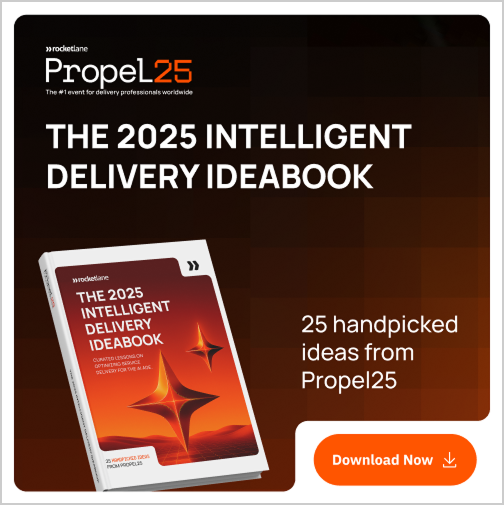

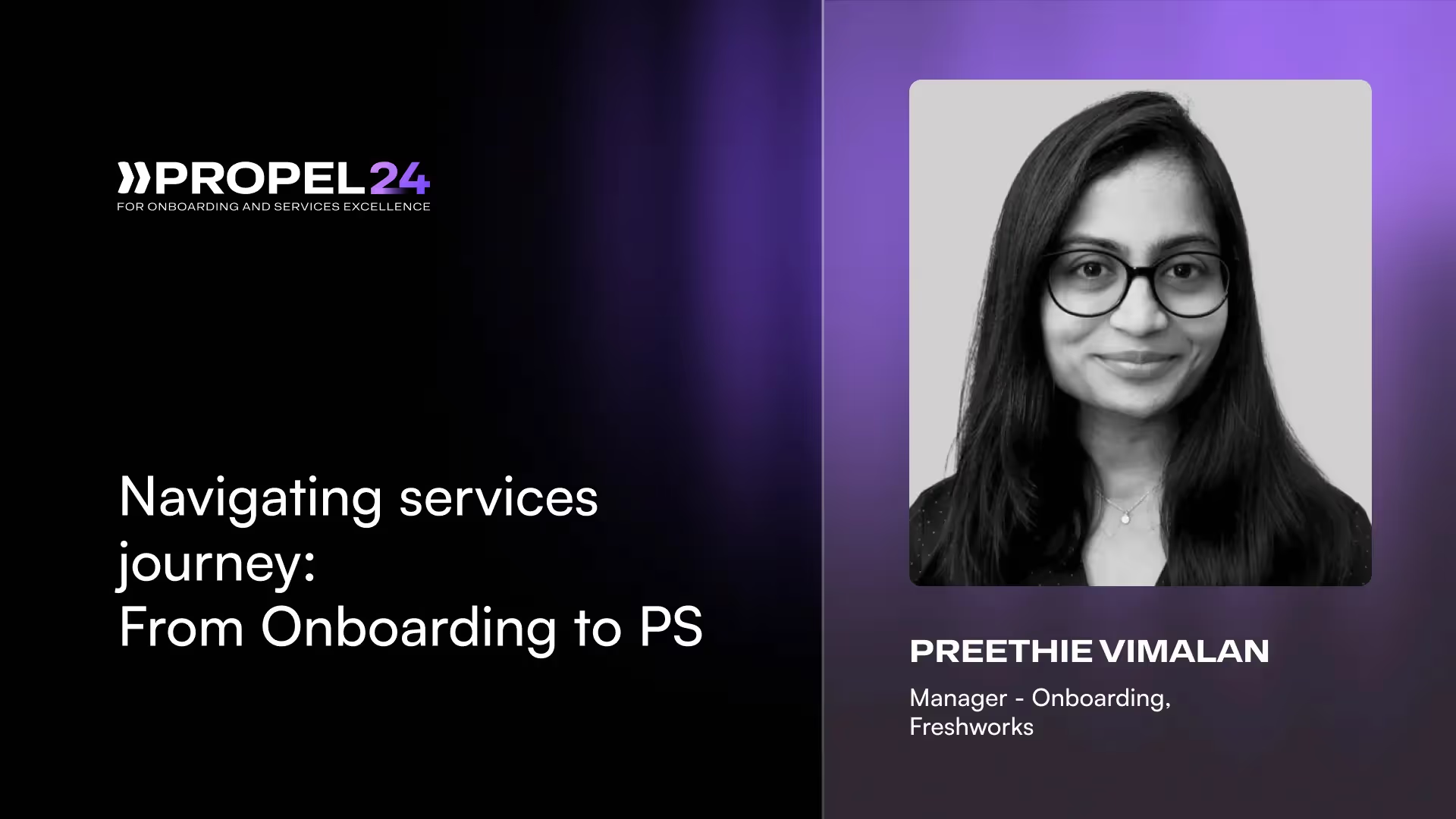




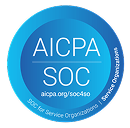
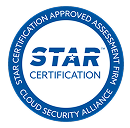











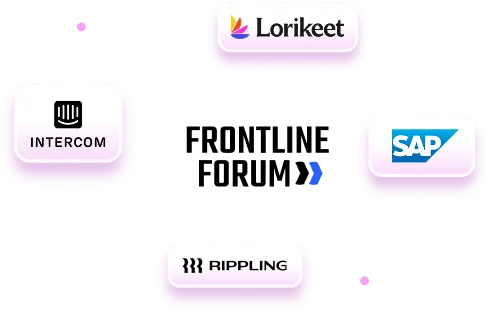
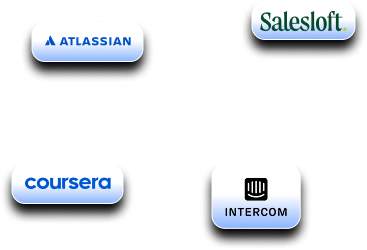

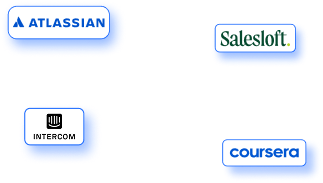
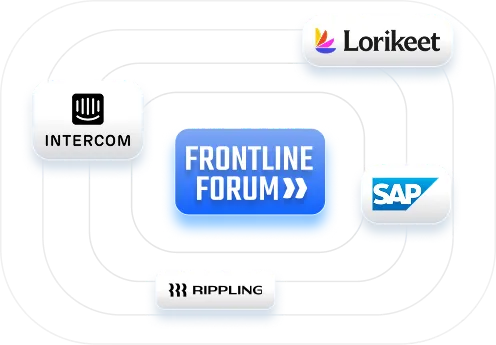
.webp)